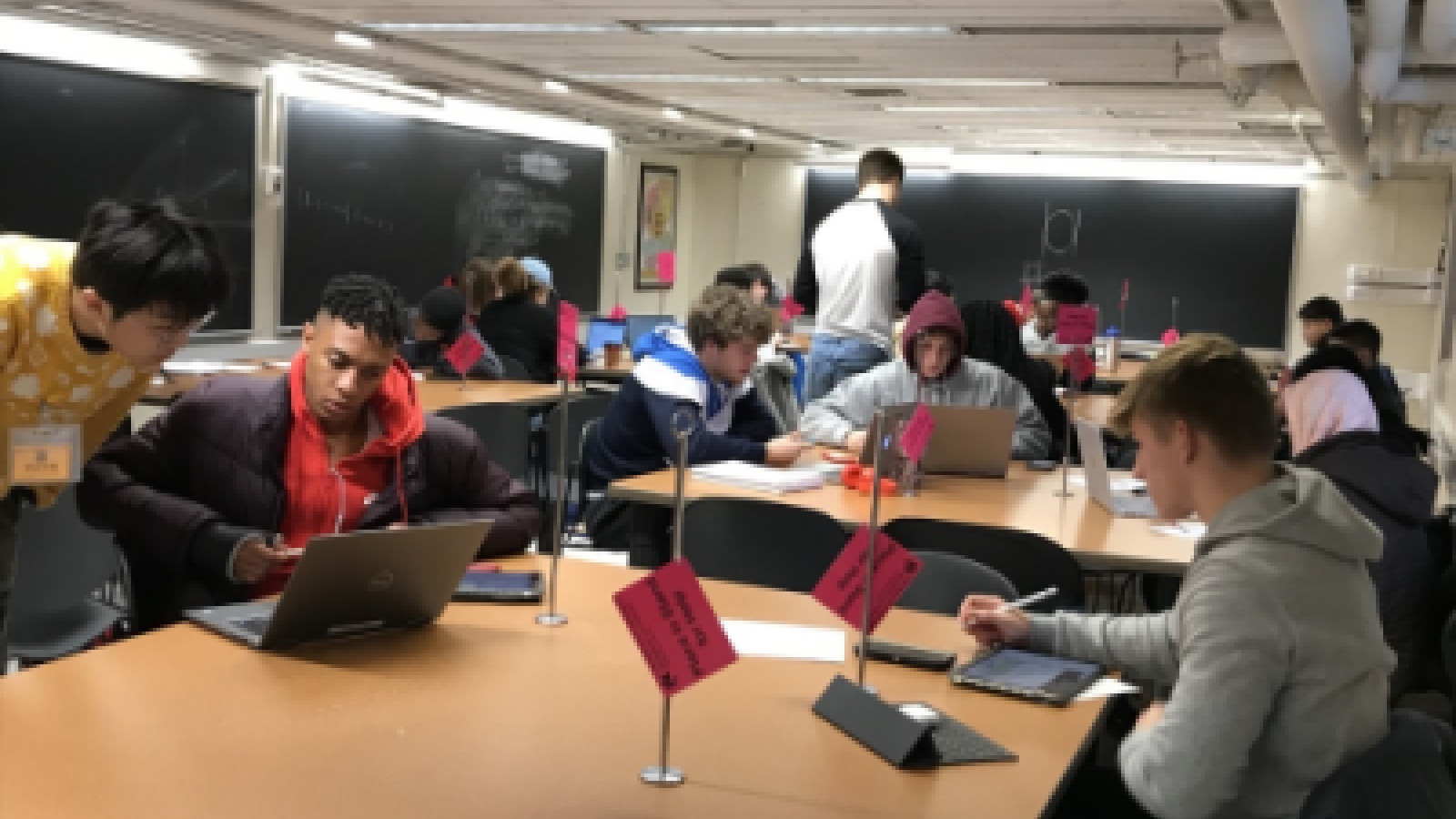
Mathematics and Statistics Learning Center (MSLC) Annual Update
Embedded within the Mathematics Department, the Mathematics and Statistics Learning Center (MSLC) is a central hub of departmental expertise in undergraduate mathematics education. Focusing primarily on first- and second-year mathematics courses, the MSLC is part of a broad network which spans the department, university, and peer institutions.
The MSLC brings departmental stakeholders together to form a community of practice focused on improving undergraduate mathematics education. This past year, the MSLC provided math instructor professional development in the form of the Math Education Reading Group, Active Learning Lunches, Math Instructor Community Chats, and New Instructor Orientation. In addition, the MSLC works closely with coordinators of large first-year math courses to enable teaching at scale, supporting all aspects of course delivery, including course design, pedagogy, and instructional technologies. During the 2022-2023 academic year, we reached 17 unique courses per semester, 126 unique instructors per semester, and 17,000 non-unique students per semester.
At the university level, the MSLC partners with other units with similar missions, such as leading the Tutoring Services Resource Group, open to 75+ leaders of tutoring-like support centers throughout the university, including regional campuses. Through memberships in national-level networks, such as the SEMINAL Grant (Student Engagement in Mathematics through an Institutional Network for Active Learning) and co-leading the Mathematics Learning Center Leaders, the MSLC has developed relationships with like-minded individuals at peer institutions, affording the exchange of ideas and expertise. Further, the MSLC contributes research to the mathematics education community through publication of journal articles on theoretical underpinnings of mathematics tutoring, and practitioner pieces on results of innovative teaching at OSU.
The MSLC provides a wide range of student support. We support over 15,000 students a year with services such as drop-in and appointment tutoring, online resources, and outreach to special-populations programs. This past academic year, of the nearly 3,000 unique students attending tutoring, 26% were First-Generation. In addition, of these 3,000 students, 53.5% were white, 16.4% Asian, 13.5% Black or African American, 7.8% Hispanic, and 8.9% Other. Teaching Assistants contributed 5,300 of the tutor hours worked in the MSLC while 8,000 hours were worked by undergraduate tutors paid by the MSLC. Student testimonials demonstrate the importance of our services: “I went into the room scared that I was going to come off as “not that intelligent” but the tutor that I had was very passionate about math and even praised the way that I think and helped me solve my problems in the way I was thinking as opposed to telling me that there is only one way to approach the problem.” MSLC undergraduate tutors are trained in research-based best-practices for mathematics teaching and learning, including the importance of equity and student affect.
In June, Dr. Darry Andrews retired from the MSLC after 20 years of service. This coming year, the MSLC will be under new leadership with Dr. Carolyn Johns serving as Interim Director. Upcoming projects include ongoing support for the search for ADA accessible solutions for instructional and student support materials, as well as support for and participation in the HHMI (Howard Hughes Medical Institute) grant. We also expect our student visits to our tutoring center to continue increasing, which along with increasing minimum wage, necessitate advocacy for increased funding.
See our full list of accomplishments in the MSLC Annual Report 2022-2023.
Article contributed by Carolyn Johns, Ph.D.
Interim Director
Math-Stat Learning Center | The Ohio State University
